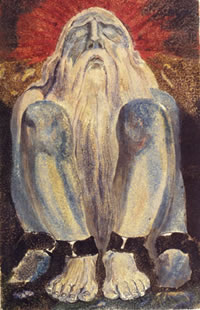We’ve all experienced it. You’ve just caught the best wave of the day; the crowd on the beach are going “oohhh” and “aaahhh” as they admire your moves; even your dog is panting with pride at his master’s brilliance. Then, dammit, you find your cellphone battery has gone flat, just as you were ordering a pizza for delivery to the beach.
Well, this frustration has become a thing of the past, thanks to the creative genius of Mr Anthony William Jones of Garden Grove, CA. With his solar surfboard (United States Patent 8262425) you can just plug your phone into the convenient plug point provided on your surfboard. When the phone’s charged, you could use the plug for your hair dryer or portable TV.

Nobody actually needs a solar surfboard, of course, in fact I’m willing to bet that the people who want one are a vanishingly small minority. I don’t expect these things to be mass-produced and offered for sale in surf stores anywhere. So why patent it? Mr Jones is unlikely to make any money from licensing his patent. So what are patents for?
In theory they are supposed to encourage innovation by giving the patent-holder a monopoly over his invention for a certain amount of time. But, as Yogi Berra said, “In theory there is no difference between theory and practice. In practice there is.” Patents only make sense if (a) the effort involved in researching and developing the invention is expensive and time-consuming, and (b) the invention is easy and cheap for competitors to copy. This applies neither to electric surfboards nor to most of the other patents that are approved by patent offices around the world.
The number of patents granted is staggering. In the U.S. the patent office has approved over 8 million patents. Some of these are, in my opinion, ridiculous. A patent is supposed to be novel, useful and not obvious. But patents are granted for things that existed long before the patent was applied for (buttons on a computer’s GUI interface, for example); for things that are useless (like solar surfboards); and for things that are obvious (a carrying handle on a heavy object). Companies enter into patent wars, suing and counter-suing each other for astonishing sums of money—see the recent litigation between Apple and Samsung—which cannot be good either for the companies involved, nor for the consumers of their products. Patent ‘trolls’ buy up patent rights and use them to extort money from manufacturers who cannot afford the breathtaking costs involved in defending themselves against the trolls, which again has the effect of driving up costs for the consumer. The net effect of all this is that innovation is stifled rather than encouraged.
What can be done about this? My suggestion is that patents should only be granted in cases where the applicant could suffer substantial losses if his invention were copied by competitors, and that patent offices should be far more rigorous in establishing whether or not the proposed invention is indeed novel, useful and not obvious. Moreover, ideas should not be patentable. This would prevent patents being granted for computer software, for example. Software code is copyrighted, so the code itself can be protected, but what that code does is an idea, not a thing, so it would not be patentable.

Grumpy Old Man by Mark Widdicombe is licensed under a Creative Commons Attribution-Noncommercial-No Derivative Works 2.5 License




 Posted by Mark Widdicombe
Posted by Mark Widdicombe 







